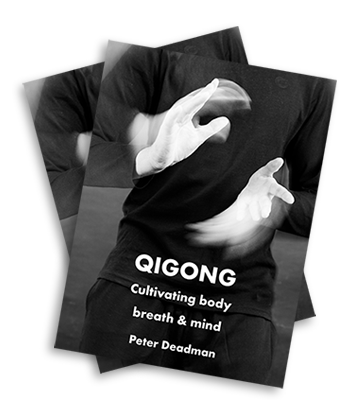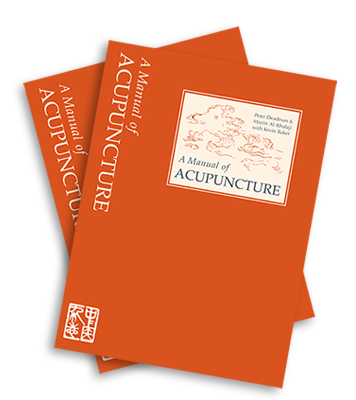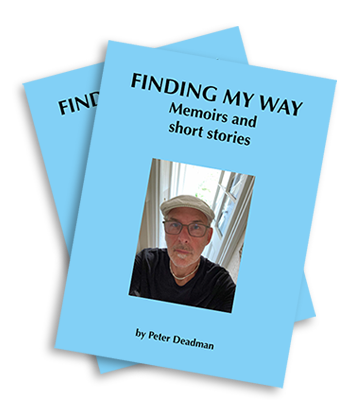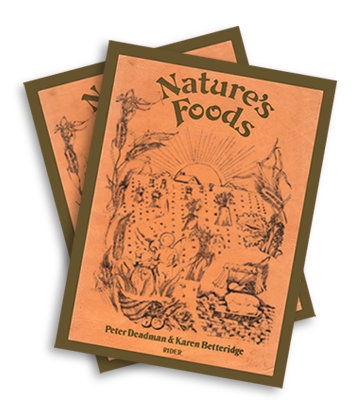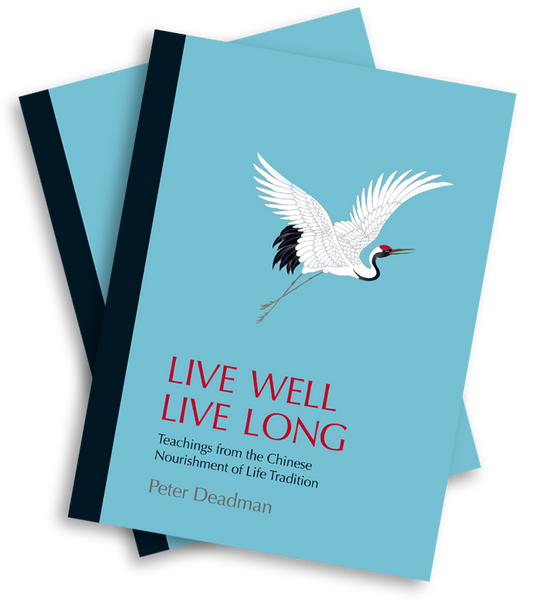
Live well, live long
Live Well Live Long explores the wonderful Chinese tradition of nourishing life (yangsheng). Continuously developed over more than 25 centuries, it serves as a workshop manual for the care of the human body, mind and spirit. Its teachings can help us improve our health and lengthen our lives through cultivating our mind, emotions, diet, exercise, sleep, sexual behaviour and much more. These teachings are comprehensively backed up by the findings of modern lifestyle research.
At the same time, the world has changed radically since the early days of yangsheng teachings. This book also shows how its core principles can offer solutions to many of the challenges we face today: climate change, sustainability, social injustice and more.
some reader reviews
Read all the reviews
Click below to expand and read reviews
If first impressions are anything to go by, then Peter Deadman's Live Well Live Long ticks all the boxes for presentation and production values. With its elegant cover and glossy heavy grade paper, this beautifully bound book serves as a worthy introduction and thorough exploration of the long-standing tradition of yangsheng (nourishing life) in Chinese health culture. Yangsheng will be familiar to most readers as practices for the cultivation of health, physical and mental balance, detachment from excessive emotions, integration of mind and body and ultimately the promotion of wisdom and longevity. This tradition has been developed over the last two and a half thousand years as part of Chinese culture.
In settling down to read this book, I couldn't help initially drawing comparisons with Daniel Reid's The Tao of Health, Sex and Longevity that marked my introduction and subsequent fascination with Chinese Medicine nearly 25 years ago whilst traveling around South East Asia. In many respects, Deadman's new book covers much of the same ground, but, whilst reading it felt like a homecoming of sorts for me, this book stands as an altogether more mature exploration of the topic of Chinese health traditions. Whilst other books covering yangsheng principles have tended to be heavily burdened with Chinese Medicine (CM) terminology and technical details of various practices such as qigong, Deadman has favoured a more research-led academic approach to the subject. There is an introduction to some of the key terms required for the discussion such as yin, yang, qi, blood, jing and shen, as well as the concepts of pathogenic factors, stagnation and stasis, but it is very clear from the outset that CM diagnosis and treatment fall outside the remit of this book. So much so, in fact, that further clarification of CM terms is tucked away in a useful glossary at the rear. Though this may disappoint some readers, the decision to keep this text firmly focused on Chinese health traditions rather than Chinese medicine will broaden its appeal to a wider audience, without losing its relevance in terms of both traditional and modern medical thinking. Despite the author describing this text as a 'workshop manual', he wisely avoids the obvious pitfalls of providing specific dietary advice, recipes, exercises, breathing techniques, supplements, herbal remedies or sexual health practices, beyond the general principles espoused in the nourishing life traditions.
Live Well Live Long is logically laid out, devoting chapters to all the major areas of the yangsheng tradition. A brief introduction to the definition of yangsheng is followed by an overview of the health challenges that today's society faces from chronic disease, with a cautionary reminder of the limits of medicine in trying to deal with the epidemics of obesity, diabetes, cardiovascular disease, cancer, depression and dementia. Concepts of constitution, inherited and acquired essence, gender, poverty, environmental factors, work, ignorance, medical treatment and even luck are introduced as determinants of how long we are likely to live and how healthy we are likely to be. The individual causes of disease are then explored further in relation to how they affect the balance of healthy and pathogenic qi, with constant reference to modern day studies that back up the traditional Chinese view. Chapters are then devoted to each of the main areas of yangsheng: cultivating the mind and emotions, diet (how and what to eat), exercise, sleep, affairs of the bedroom, pregnancy, childbirth and postpartum care, and care of children all gain extensive coverage, and are complemented by chapters on less obvious subjects such as alcohol, tea, nature, music and dance, old age and death.
The two chapters on diet are particularly thorough, yet not overly proscriptive, covering how and when to eat as well as what to eat. As well as the major food types, they also cover modern concerns such as gluten sensitivity and coeliac disease, healthy fats, excess sugar, as well as vegetarianism and research on pesticides and organic foods. The subject of exercise is similarly well treated, warning against excessive practices and espousing the virtues of softer forms of exercise that integrate strength and flexibility, mind and body, and that are particularly suitable after a certain age. The chapter on affairs of the bedroom succinctly covers the tradition of self cultivation through sexual practice without getting bogged down in specifics. A new perspective is offered here on male ejaculation as Deadman seeks to settle the age-old debate on whether or not men should 'spill their seed.' Modern day research is used to inform the debate, including reference to prostate cancer and erectile dysfunction, and also includes comment on the effect of pornography on health and libido.
The core concepts of Taijiao (foetal education), natural birth and 'doing the month' during postpartum care are covered in depth, offering key insights into the potential risks and opportunities for changing the health outcomes of both child and mother. This leads to an interesting discussion on John Shen's ideas about pregnancy being a 'gateway' time of life (together with puberty and menopause), when significant physiological change can lead to either ill health or growth and vibrancy. Other chapters are equally revealing, and reading through them gives one the sense that no stone has been left unturned in this exploration of health. Broader considerations of environmental health, pollution, sustainability, global health concerns, social justice and education are incorporated where necessary, adding a modern day context to traditional wisdom and reminding us that global stewardship is as much a part of yangsheng as self cultivation. Of particular interest is the fascinating discussion on the importance of the microbiome, complete with references to faecal transplants in the treatment of inflammatory bowel disease and mention of Ge Hong's infamous 'yellow soup' (a preparation of dried or fermented faeces). This is quite rightly nestled in the appendices along with discussions of detoxing, smoking, Chinese science, the history of Chinese health exercise and spirituality.
As one might expect, this book draws heavily from the huge list of references that follow each chapter. By the author's own admission, the reliance on research can make for heavy reading at times, but thankfully the text is cleverly punctuated with research summary boxes and the liberal use of quotes and excerpts from sources as diverse as the Neijing, the Daodejing, the writings of Sun Simiao, Hippocrates, Shakespeare and even A.A Milne's Winnie the Pooh. Their use pays respect to the classics and wisdom of old, while serving as a bridge between traditional thinking and modern day research, and illustrating that ultimately health considerations essentially have not changed much in 3000 years. This mixed format ensures that the reader feels a palpable connection between the past and present at every turn. Time and time again, Deadman successfully uses modern day research to confirm that, in almost all areas of life, a moderated, balanced and harmonious 'middle way' tailored to the individual has routinely been shown to foster better health outcomes than the extremes of behaviour that are all too common in today's busy lifestyles.
If I had to offer any criticism it would be that the text would benefit from the occasional illustration to break up proceedings. Deadman has also played it safe in avoiding even a cursory discussion on vaccinations, although given the current hostile climate surrounding the debate, this omission is understandable. In summary, there is much to like about this book. For practitioners it serves as validation of many of the principles upon which our medicine is based at a time when we are coming under attack for lack of robust 'evidence.' More importantly it confirms to us that the promotion of basic health maintenance is as important as the medicine that we offer. This book therefore serves as a valuable resource to draw from or refer patients to for continuation of their care.
For the lay reader - who is bombarded with new health information daily in the form of quick fix protocols, fads and miracle cures - Live Well Live Long offers a welcome steady ship in the storm. It demonstrates, using modern research, that the accumulated wisdom of Chinese health culture, when studied and applied appropriately to our lives, can have a profound and lasting effect on health, from gestation to the grave. As such it offers the lay reader a gateway to better health. Deadman has delivered a timely and important text that will be equally at home on a practitioners desk as on a coffee table. I shall be recommending it widely to patients and family alike.
Martin John
"This is an authoritative, scholarly, thorough and compassionate book about being alive in its broadest and highest sense. It has much to offer practitioners, educators and the general public."
Australian Journal of Acupuncture and Chinese Medicine
“Elegant and accessible, informative but undogmatic, comprehensive yet not boastful. It is a magnificent achievement, especially in the way in which it incorporates knowledge and wisdom from many cultures with no conspicuous friction. Deadman recognises and acknowledges many uncertainties and gaps in our knowledge, yet articulates an illuminating and authoritative narrative.”
Erik Millstone, Professor of Science Policy at the University of Sussex
"Elegantly written and diligently referenced; this book is an ultimate guide for wellbeing. The uncompromising relevance of this book makes it a must for all TCM practitioners and a first recommendation to all our patients."
Yanan Kim, Teamor Tea Tailors, Australia
"This is a beautiful book. It is written in a way that would make it accessible to anyone, while at the same time conveying important, well researched and useful items of knowledge. A great book to have on the shelf, for the chapters are very clear so it's easy to dip into if you want advice on a particular subject. A rich array of wisdomous tips to live a long and healthy life which have their conception in Chinese medicine, however they are all backed up with western/modern research. I highly recommend."
Amazon review
“An extraordinary masterpiece … There has never been a book that so clearly, comprehensively and entertainingly tells you how to get to be 100 years old and still be happy and healthy. Get this book and keep it by your bedside. Give a copy to anyone you love and who you would like to share the rest of your life with in good health and humour.”
Craig Sams, co-founder Green & Black’s chocolate, past chair of the Soil Association.
“Peter Deadman has achieved something wonderful, something gorgeous in creating this book. He has managed to write with great simplicity, eloquence and gracefulness about a subject which is deep and rich; yangsheng, the Chinese tradition of nourishing life … I am certain that the book will appeal to anyone who has no knowledge of the Chinese philosophy of how to look after ourselves in body, mind and spirit.”
Emma Farrant, The Register of Chinese Herbal Medicine Journal
“Elegant and accessible, informative but undogmatic, comprehensive yet not boastful. It is a magnificent achievement, especially in the way in which it incorporates knowledge and wisdom from many cultures with no conspicuous friction. Deadman recognises and acknowledges many uncertainties and gaps in our knowledge, yet articulates an illuminating and authoritative narrative.”
Erik Millstone, Professor of Science Policy at the University of Sussex
"This is a fantastic book for both practitioners of Chinese medicine and interested members of the public alike. The book is well-referenced (which cannot be said for all Chinese medicine tomes) and provides a much-needed English language text on the practice of "Yangsheng" (nourishing life), which is much more than mere disease prevention. I read the book from cover to cover very quickly and I know that it is a book that I will constantly revisit. We are bombarded on a daily basis by changing and conflicting advice about how to be healthy, but this book cuts through all the nonsense and just offers sound, reassuring advice based on health preservation practices which, for the most part, have been practised for generations. It is also very well-organised and is obviously the result of extensive research and careful thought, which has resulted in a very enjoyable, yet educational, read."
Amazon review
"Having received acupuncture for the best part of 20 years (on a preventative basis - I like the traditional Chinese philosophy of going to see the doctor to stop me getting ill), I have picked up all sorts of helpful hints and tips from my practitioner. This book contains almost all of them, and a huge amount more. It's a beautiful hardback book and is very well written. It mixes traditional Chinese thinking with findings from Western science. I wish I'd been given this to read twenty years ago, although I fear I might not have taken notice! A brilliant read for anyone interested in their health or that of their family and friends."
Amazon review
"The author, Peter Deadman, is a living legend in UK Acupuncture and Chinese Herbal Medicine circles and I am so delighted he has put this wonderful manual together on how to "Live Well, Live Long". As a practicing therapist of same it is a wonderful resource for practitioner and patient alike and helps to reinforce key concepts. A pleasure to read - either from cover-to-cover or to dip in and out of."
Amazon review
"This is a beautiful book. It is written in a way that would make it accessible to anyone, while at the same time conveying important, well researched and useful items of knowledge. A great book to have on the shelf, for the chapters are very clear so it's easy to dip into if you want advice on a particular subject. A rich array of wisdomous tips to live a long and healthy life which have their conception in Chinese medicine, however they are all backed up with western/modern research. I highly recommend."
Amazon review
"A beautifully written and well researched book, with ancient pearls of wisdom on how to care for our mind, body and spirit in the 21st century. Deadman's collection of teachings on yangsheng (nourishing life) is clear and easy to read for practitioners as well as laypersons. As a Doctor of Acupuncture and Chinese Medicine, I've been looking for a collection like this to reference in my practice and share with my patients. It's finally here! Throw out all your self help, diet and nutrition books and read this book from beginning to end."
Amazon review
Take a sneak peak at what's inside the book
VIEW PREVIEWPurchase Options
This book is available in many different formats from the following authorised distributors
